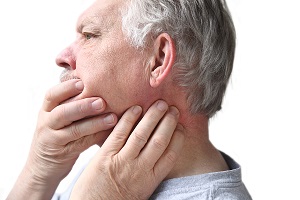Teeth Grinding

Teeth grinding, also known as bruxism, is a medical condition that affects a small percentage of the population. It usually occurs during the night while a person is sleeping, and involves a clenching or grinding of the upper and lower teeth. Dr. Carol Jin can help evaluate your teeth if you believe you may be experiencing teeth grinding.
What Are The Symptoms of Teeth Grinding?
While a person may not be aware they are clenching or grinding their teeth, there are several symptoms that accompany bruxism. Some of those symptoms include:
- Loud grinding noises that can disrupt sleep
- Tooth enamel that has been worn, exposing deeper, more sensitive layers
- Fractured, flattened, chipped, or loosened teeth
- Heightened sensitivity of teeth
- Jaw and face pain
- Tight or fatigued jaw muscles
- Headaches starting from the temple region of the head
- Earache-like pain not associated with normal causes of an
- Damage to the inside of your cheek due to chewing
What Are The Causes of Teeth Grinding?
While medical professionals are not able to identify a specific cause of teeth grinding, there are several contributing factors associated with bruxism.
Some of the physical and psychological contributing factors are:
- Sleep problems such as sleep apnea
- Poor alignment of the upper and lower teeth
- Stomach acid reflux
- Stress, anxiety, tension, angry and frustration
- The tendency to be more aggressive, competitive or hyperactive
- In rare cases, a reaction to some psychiatric medication
Some demographics are more inclined to experience teeth grinding, such as children who often grind or clench their teeth during the night in response to teething pain. Children will most often outgrow this by their teens.
Are There Dental Treatment Options For Teeth Grinding?
If you are concerned that you may be clenching or grinding your teeth, you should schedule an appointment to speak with a dental professional. Dr. Carol Jin can examine your teeth and surrounding area for signs of excessive stress, and then discuss options for treatment.
Some of the more common bruxism treatments include:
- Mouth guards and splints – in order to reduce or eliminate the stress of grinding and clenching, your upper and lower teeth must be separated. Mouth guards and splints are a non-evasive way to accomplish this.
- Teeth surface reshaping – when your enamel has been worn down, reshaping the surface helps to reduce sensitivity while also helping you to chew more effectively.
- Braces
- Oral surgery
What Happens If Teeth Grinding Is Left Untreated?
If left untreated, teeth grinding and clenching will exact a price on your teeth. You could experience damage to your teeth, crowns, restorations you may have, and your jaw. You may also experience disorders of the jaw muscle (TMJ), which can be very painful and frustrating when the jaw becomes unable to fully open and close.
Dr. Carol Jin and her San Ramon dental team provide a relaxing and professional atmosphere to address all your teeth grinding concerns. If you have any questions or would like to schedule an appointment, call Dr. Carol Jin today.



